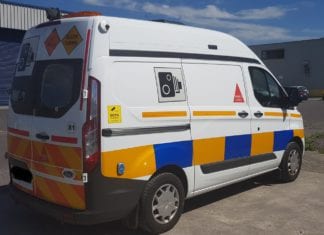The use of drones to deliver defibrillators in cardiac emergencies could save lives, a local senator has said.
Senator Seán Kyne, who is a member of the Oireachtas Health Committee, was speaking following the results of a project in Sweden which showed quicker response times by drones than ambulances.
The Fine Gael senator said that the men and women of our ambulance service save lives every day across Ireland.
But he said that our geography means homes and communities are spread out across the country, which can make responding to emergencies more challenging.
“Automated external defibrillators (AED) are proven to increase chances of survival in cases of cardiac arrest by allowing bystanders to intervene and deliver treatment before paramedics arrive on the scene,” said Senator Kyne.
“Although AEDs have already been deployed in many public spaces around the country, according to the National Ambulance Service, the majority of all out-of-hospital cardiac arrests in Ireland happen within the home (69%) – often a considerable distance from the nearest AED point.
“A recent project undertaken in Sweden provides a viable solution to that problem – using drones to deliver defibrillators to homes while patients wait for paramedics to arrive.”
Senator Kyne spoke about emergency services in Gothenburg, Sweden, who worked with a drone operator and university researchers to dispatch defibrillators to 72 out of 211 cases of suspected cardiac arrests over the course of an 11-month period.
“The drones arrived on average in just over 3 minutes, outplacing ambulances in two out of every three emergencies,” he explained.
“In cases of heart attack or cardiac arrest, every second counts. Currently, the national ambulance service aims to arrive in less than 19 minutes in at least 80 per cent of life-threatening incidents.
“While we must always ensure our emergency services and paramedics are properly resourced with enough vehicles and bases across the country and backed up by air ambulances, drone delivery of defibrillators should be explored as a further additional measure.
“This innovative use of technology could buy crucial time while emergency services are en route. By working together, as in the trial project in Sweden, we could save lives.”













